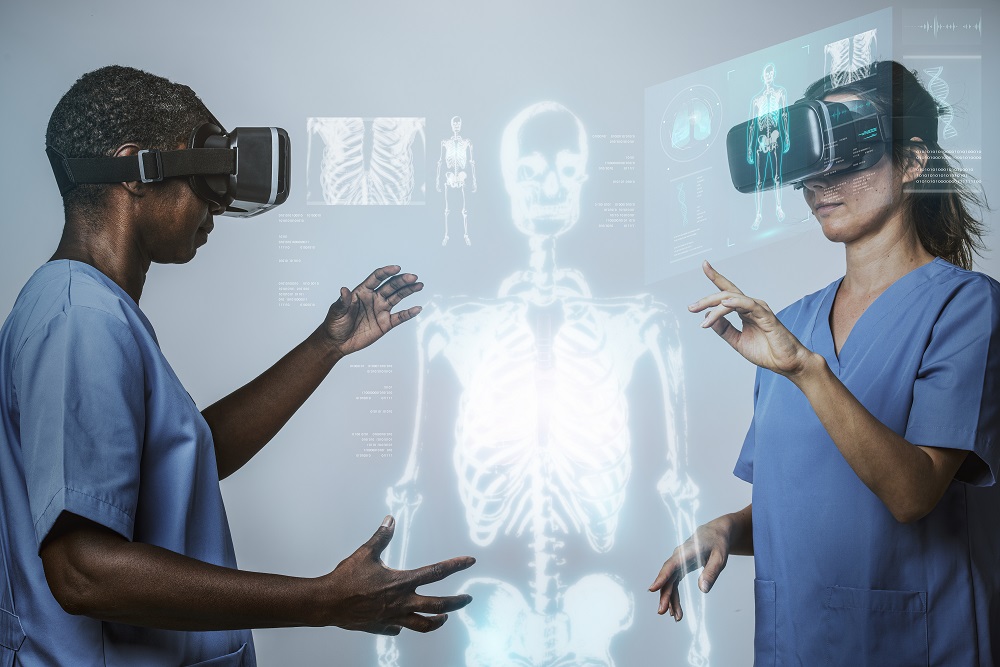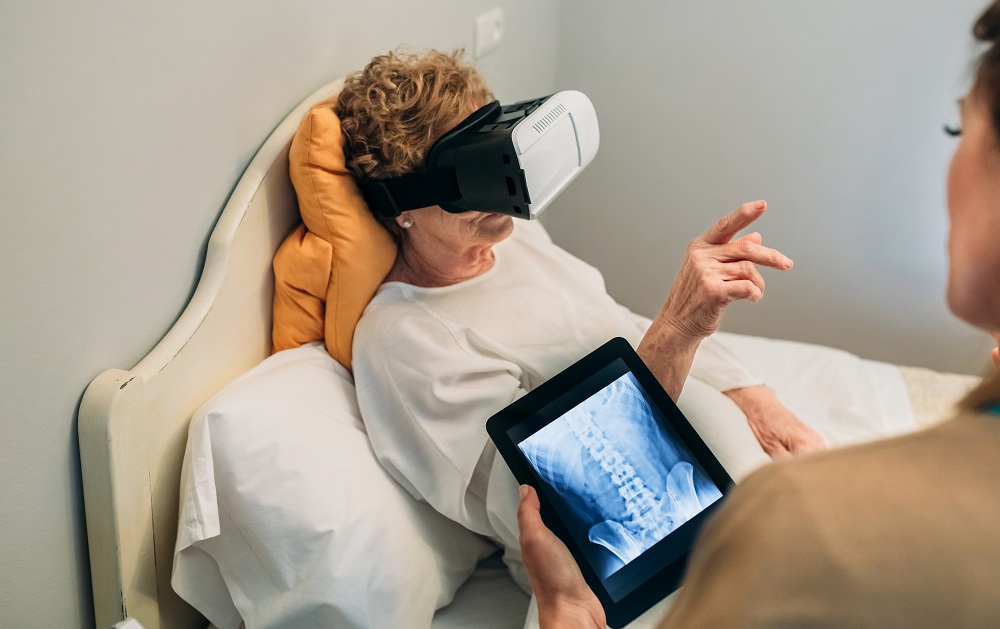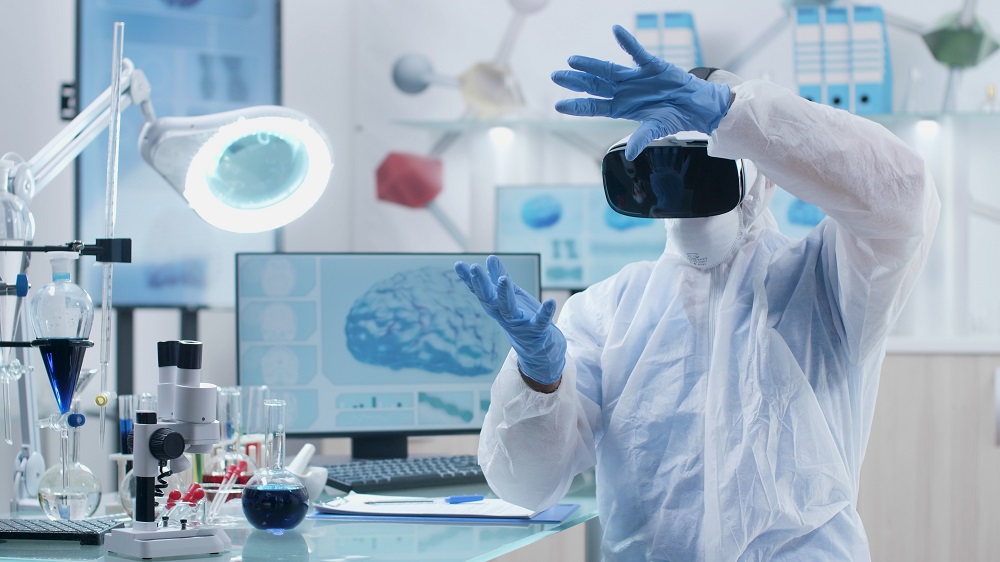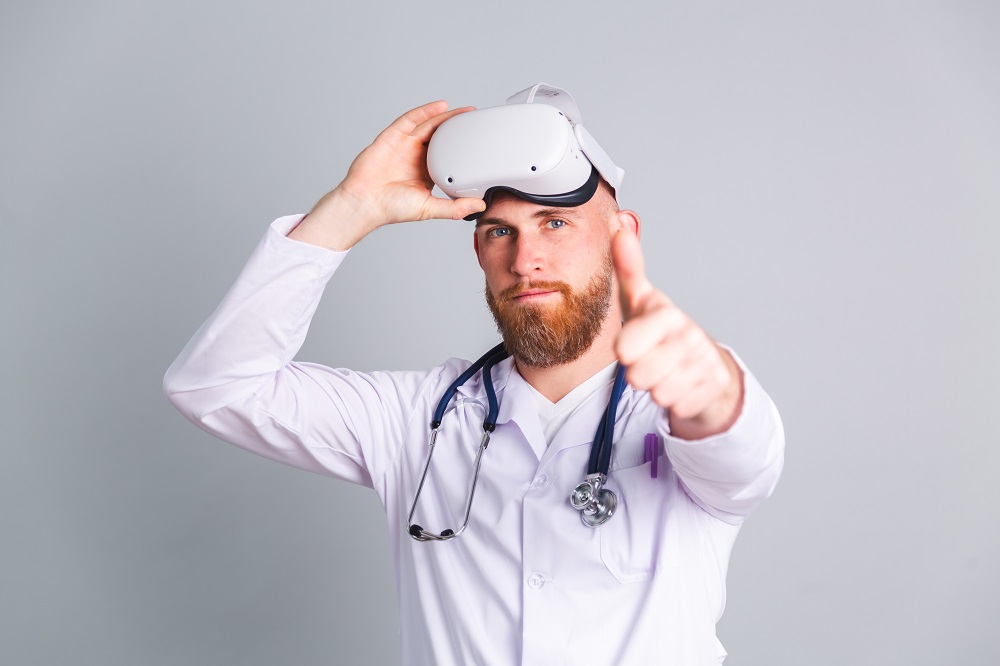Ever since covid-19, the medical field has been trying to find for new and innovative solutions that are more flexible. Virtual reality seems to be adapting to the global healthcare as well as any other tech company is at the moment. Hopefully, hospitals and medical institutions will be ready when another global health crisis arises.
Although VR is still in their early stages as far as medical applications is concerned, it is a safe bet to that it will increasingly be used to strengthen the safety and efficacy of surgical procedures and to understand better the intricacies of the human body.
How is virtual reality changing healthcare?

The healthcare industry needs a systematic and strategic renovation of how the future workforce will be train, how patients are treated. So here comes VR as a solution to many of the current challenges in the field.
Virtual reality is a technology that allows users to experience a situation through an immersive simulation. And you may ask yourself, but how is virtual reality changing healthcare? Well, virtual reality can be used in so many areas in the healthcare industry and in a variety of applications, such as: medical training, patient treatments, medical marketing and educating the general public about disease or medical conditions.
Virtual reality is already being used in many fitness apps to promote physical activity and healthy habits. It can also make it possible for doctors to share their knowledge with patients and them to communicate their experiences
6 Unimaginable Ways Virtual Reality is reshaping Healthcare

We can say medical VR has enriched with endless possibilities and there are a lot of good examples of its positive effect on the lives of both patients and medical practitioners.
We managed to narrow down to 6 ways virtual reality is reshaping the healthcare industry at the moment:
1) Medical training: currently any kind of medical situation can be now simulated using VR technology which allows students to train as they were in a real-life process. With advantage that these practices can be safely followed by feedback to allow them to learn from their mistakes. It can also help medical professionals practice for complex procedures.
2) Treatment of patients: VR can be very effective in planning complex operations, helping the medical team to rehearse planned interventions. Which will maximize safety and minimize surprises during the procedure.
VR can also be very helpful in treating mental health patients by recreating the corresponding phobia or situation in a safe environment.
3) Pain management: Virtual Reality can be also used to relieve pain and in rehabilitation patients with severe pain, or to help children feel less afraid. An immersive experience can be effective to distract a patient and relieve their pain.
4) Physical therapy and rehabilitation: Virtual Reality can be used to shorten the recovery of patients by making it easier to do their exercises by encouraging them to complete their activities.
5) Addiction: In this case Virtual Reality can be used to gradual exposure techniques such as the simulated patients own environment where the patient can practice resisting known triggers.
6) Health education: Patients can find Virtual Reality very helpful to understand their medical condition, how will their surgeries would be exactly or how bad habits can have a big impact on their health.
Top virtual companies in healthcare

Here are the top virtual augmented and virtual reality companies in healthcare that are making unimaginable things and are making bets for the future in the medicine field.
1) FundamentalVR: Offers a flight simulator training for surgeons and AR tech using Microsoft’s HoloLens tech.
2) Karuna Labs: Uses virtual reality simulation to treat chronic pain.
3) OxfordVR: Targets relieve of the symptoms of mental disorders and fear with virtual reality.
4) Augmedics: Has the first augmented reality guidance system for surgery called Xvision. This tech allows surgeons to see the patient’s tissue like they had X-ray vision.
5) Surgical Theater: Have created a surgical rehearsal platform called Precision VR, it works as a preoperative planning, it can also show the patient a VR scenario of their surgery process.
6) Echopixel: Has an AR platform called True3D that serves to visualize and interact with organs and tissue of the patients. This tech can also show holograph images so the patients can see the medical results.
7) Medivis: Uses both augmented reality and artificial intelligence to get presurgical information of the patient’s anatomy.
8) Health Scholars: Provides VR training solutions for first responders and clinicians using AI-enabled VR simulations and performance assessment of life-saving experiences.
9) Vicarious Surgical: Makes minimal invasive procedures possible through a surgical robot and virtual reality.
10) Touch Surgery: Provides more than 200 virtual reality surgical simulations and videos on 17 specialties.
11) Proprio Vision: Uses computerized tech to enable surgeons to see the body in immersive ways.
12) ImmersiveTouch: Designs 3D virtual reality models using patient’s medical information.
13) OSSO VR: Facilitates surgical training using immersive virtual reality experiences and haptic feedback.
14) SentiAR: Uses augmented reality to create holographic visualization of patient’s anatomy during interventional procedures.
15) Medical Augmented Intelligence: Offers virtual reality training for anatomy and acupuncture as well as digital models for patient education.
16) SyncThink: Developed a virtual reality headset, the EYE-SYNC. It helps clinicians determine if patients have a concussion tracking eye movements.
The future is exciting as we can see with these early stages of virtual reality and augmented reality in the medical field. And these companies are reshaping the future of healthcare as we know it. We are sure that it won’t be long before these tools will be used on a daily basis in the healthcare industry.
¿VR experience for your company?
The VR experience is already here, and not only in the medical field. If you want to be part of this and be a step ahead in the future of marketing, let us help you. In Stringnet we build innovative events for brands, hybrid marketing, immersive space for virtual networking, among others.
Let’s talk. Contact us here.


